- Home
- Terry Brooks
Sometimes the Magic Works Page 5
Sometimes the Magic Works Read online
Page 5
I mulled these elements over, searching for a storyline that would incorporate and address all three. Nothing worked. Then one day, while I was driving on the Seattle freeway, another driver cut me off in truly reckless fashion. It wasn’t as if this hadn’t happened before, but for some reason on that particular day it made me think about human behavior in the larger sense. I despaired that we had forsaken so many of the common courtesies. I bemoaned that we had forgotten how to be kind to each other in the way we were when the world was less complicated and hurried. I also worried that I was turning into my father, but I put that thought aside.
What I ended up wondering was whether we might be a people in the process of destroying ourselves without realizing it. Could our commonplace failures of consideration and caring be the harbinger of a larger social breakdown? Wasn’t that how all civilizations eventually began to destroy themselves? Small cracks lead to large fissures, and the walls come tumbling down?
This was where the idea for Running with the Demon began. The what-if questions continued. What if our self-induced destruction was being aided and abetted by a truly dark force? What if that darkness was balanced by a force of light, and the two had been locked in battle since the dawn of time—a familiar concept. But here is the clincher. What if you were someone who knew this was happening and could do something about it; how much of yourself and your life would you be willing to sacrifice for the chance to make a difference?
From those questions emerged the characters of John Ross, the Knight of the Word, who is the paladin of hope for a world under siege from the forces of the Void, and Nest Freemark, the teenager whose dark family history hides a handful of secrets that could lead to the Knight’s success or failure. More questions followed, each one leading to another, opening new doors and revealing fresh ideas. It works like that. In your thinking, you build your story one brick at a time until you have a recognizable house in which to move about. For Running with the Demon, the ideas came so fast and so easily that I could barely get one down on paper before another surfaced. Before I finished thinking about that book, I had the framework in place for two more. I had a trilogy with a beginning, a middle, and an ending book, a perfect circle to take the reader through three crucial meetings between the two main characters, each of which would prove to be life-transforming.
Where do you get your ideas? Mostly, from asking questions and thinking about the answers. From considering possibilities and wondering to what they might lead. From letting your mind run free and taking a close look at whatever it happens to stumble across. It isn’t thinking so much as it is dreaming. But all things begin with dreaming.
Lester del Rey told me repeatedly that the first and most important part of writing fiction is just to think about the story. Don’t write anything down. Don’t try to pull anything together right away. Just dream for a while and see what happens. There isn’t any timetable involved, no measuring stick for how long it ought to take. For each book, it is different. But that period of thinking, of reflection, is crucial to how successful your story will turn out to be.
Here’s another news flash for everyone who has ever asked a writer where he gets his ideas. Or she. Getting ideas is the least difficult part of the process. What’s hard, really hard, is making those ideas come together in a well-conceived, compelling story. So many of those ideas that seem wonderful at first blush end up leading nowhere. They won’t sustain the weight of a story. They won’t spin out past a few pages. They won’t lead to something insightful and true.
Ideas are like chocolates, as Forrest Gump might say. You never know what you are going to get.
* * *
I could have the idea on loan. He would give it to
me for exactly one year. If I wrote an acceptable
book in that time, the idea was mine to keep.
Otherwise, I would have to give it back.
* * *
* * *
BLUEPRINT
* * *
IN LATE WINTER of 1984, I flew east from Sterling to New York City for a meeting with Lester del Rey. I made the trip for several reasons, but foremost of these was the desire to talk with him about what I would write next. Rewrites for The Wishsong of Shannara were complete, and it was time to consider a new project. I knew I did not want to do another Shannara book right away. After fifteen years of working in the Shannara world, I was burned out. I needed to write something else, but I did not know what that something else should be.
I had some ideas, of course. What writer doesn’t? But I was leery of how they would be received. One year earlier, I presented a synopsis for a book entitled The Koden King, and both Lester and Judy-Lynn hated it. They did not say they hated it, not directly, but it was easy enough to read between the lines of their comments. They were encouraging of my work, as always, but clear about their opinion of the proposed book. I was tempted this time to call ahead to ask for guidance. I might not like what I heard, but at least I would avoid laying my neck on the chopping block right off the bat. But that was the coward’s way out, so I decided to take my chances.
My confusion over where to go next was further complicated by the fact that I was at a crossroads in my life. I was an attorney in a small law firm and had been so for almost the same amount of time I had been writing Shannara books. I had become an attorney so that I would not starve to death trying to become a writer. But it had grown increasingly difficult to allocate my time between the two professions. Both were demanding; both really required all my energy, not just some of it. Seven years earlier, on the eve of publication of The Sword of Shannara, I made a bargain with myself that I would not consider myself a real writer until I had three books in print. Lester amended that bargain, on learning of it, by adding that I should also have a year’s salary in the bank.
With the publication of Wishsong, I would have both. But I was still unsure about giving up my law practice. I know, I know. Was I waiting for a voice from a burning bush or something? But you have to remember how structured my life was back then. I was terrified of taking a wrong step. Practicing law provided a certain balance to my life that I was afraid I would miss badly if I gave it up. What if by abandoning law I knocked the pins out from under my writing? What if all that newly acquired time was too much time, and I found I could not write anything? What if I was not as ready as I thought?
So I came to New York and my meeting with Lester in search of more than just an idea for a new book. I came looking to discover the direction my life should take. I came seeking an epiphany.
On arrival, I checked into the Waldorf-Astoria hotel, which is where I always stayed in those days. It was close to Ballantine Books, which was located at the corner of East 50th Street and 2nd Avenue, and to the del Reys, who lived off 2nd on East 46th. Everyone was only a few blocks away, so I could walk to wherever I wanted to go. I knew I would spend most of the next day in a meeting with Lester at his apartment, then have dinner with both del Reys and one or two others a couple of blocks away at Sparks. I knew this because this is what we always did when I came to New York. Sometimes I thought Lester spent most of his time at home or at Sparks. With the passage of time, it became increasingly hard to picture him anywhere else.
I arrived late and slept in the following morning. Toward noon, I walked over to Lester’s. The del Reys shared a cavernous loft apartment in what I think must have been a converted warehouse. The apartment was essentially one room, with a small bedroom leading off one end, a bathroom midway along, and a raised overlook that served as Lester’s office and always reminded me of a pulpit. Lester and I sat in the living room portion of the apartment and ate a lunch of cold meats, cheese, and bread. We talked about Wishsong, about its publication, about other writers, about writing, about all the things that interest a writer and an editor. Everything but what I had really come to New York to talk about.
Finally, too impatient to wait longer, I brought the subject up. I wanted to do something besides another Shannara book, I
told him. I was not leaving the series, only taking a vacation. But I needed to write something else. This was essentially what I had already told him over the phone before flying in. Lester agreed that writing something different might be a good idea. A writer needed to do more than one series anyway. What sort of book did I have in mind? I told him I wanted to do a fantasy, but not an epic fantasy. Something shorter, maybe lighter in tone. Something different. Something that would give me a break from the Shannara world.
I asked the crucial question. Did he have any ideas?
Not really, he responded at once, looking thoughtful. Oh, he had an idea for a story, all right. A good story, as a matter of fact. But I was not the right person to tell it.
I bristled at the implication. Why not?
Because it wasn’t my kind of story, Lester responded. It wasn’t my sort of book.
Well, how could he be sure of that? Perhaps it was. Tell me what it was about. Let me decide.
No, there wasn’t any purpose in doing that, because it just wasn’t the right story for me.
Tell me anyway, I insisted. Humor me. At least give me the plot. Maybe hearing about it would spark an idea I could use.
Lester sighed as only Lester could—long, drawn out, and reluctant. Then he told me his idea. The story was about a man who gets his hands on one of those high-end Christmas catalogues and while paging through it finds an advertisement for a magic kingdom. He decides to buy it, even though it doesn’t seem possible that such a thing can exist. It turns out that it does, of course, but it also turns out that it isn’t anything at all like what he imagined it would be.
Lester looked at me hopelessly, conveying the clear impression that the idea and I were not suited. I told him I liked it, that I thought maybe I could do something with it. I don’t know why I said that. I didn’t have the foggiest notion what I would do with it. But the gauntlet had been thrown down, and besides, something about the idea was appealing.
I like it, I told him. Really. Let me see what I can come up with.
He considered the matter for a few moments, then nodded. All right, I could have the idea on loan. He would give it to me for exactly one year. If I wrote an acceptable book in that time, the idea was mine to keep. Otherwise, I had to give it back.
On looking back after fifteen years, I am convinced that at that moment Lester looked a lot like Rumplestiltskin.
The fact of the matter was, I had been sucked in again. I didn’t figure this out for quite a while, perhaps because I was obtuse, but more probably because I was so caught up in the challenge I didn’t stop to think about how carefully it had been orchestrated. Later, as with so many other things, Lester told me that he had intended the idea for me all along, but felt I would respond better if he didn’t hand it to me on a platter.
In any case, I completed my visit, took my borrowed idea, and flew home to Illinois. I was already thinking it through, trying to make it come together as a complete story. All I had was a concept, and a concept is just a starting point for expansion. A full-blown story requires a great deal more, and it is not a given that even the best idea can be successfully developed into a story that works.
I knew right away that the man who buys the magic kingdom would discover that it was not all it was cracked up to be. The old saw “The grass is always greener on the other side of the fence” would be tested anew. What the man thought he was buying was not in fact what he would get. Nor would being a king of his own kingdom necessarily work out the way he expected either. It would prove more difficult than he imagined. Obstacles he hadn’t anticipated would arise. This is the way life works. Even kings find that out sooner or later.
Then two questions surfaced, pretty much at the same time.
Who is this man?
Why is he buying this magic kingdom?
Everything else in the story hinged on the answers to these two questions—where the story was going, how it would resolve itself, and why the reader would identify with the protagonist.
I was surprised at how quickly the answers came to me. I discovered them almost immediately.
The man was a lawyer, and he was fed up with his life and wanted to change it. He wanted to change it at any cost. He was that desperate.
The man was me.
The revelation was stunning. I had lived all forty years of my life in the same town, save for time spent going to college and law school. I had been a lawyer for fifteen years, the last seven of them compromising myself as a writer so that if I failed, I would not sink into the mire and starve to death. I had wanted to be a writer since I was ten, but I had never been just a writer. I had never given myself the chance.
This was who the man in my book was. This was why he was willing to risk everything to buy a dream.
I began work on the book almost at once. As I wrote it, I talked about it now and then with Lester. In doing so, I discovered that he had envisioned a story more on the order of a Piers Anthony Xanth novel, light and breezy, filled with jokes and puns, a romp through an imaginary world that would cause readers to smile.
But I saw the story in a darker light. As a writer, I am drawn to harder-edged issues, particularly those dealing with life-altering decisions and secrets that destroy. So even though I cloaked this book in trappings of humor and populated it with peculiar and sometimes comical characters, the questions I asked were serious. What happens when you change your life completely? What are the consequences of abandoning everything you know? What is the impact on you and those around you when things do not work out as you expect?
I wrote the book in a little over ten months. It is the story of Ben Holiday, a Chicago trial attorney who loses his wife and baby in an auto accident, grows frustrated with a legal system he sees as antiquated and unfair, and searches for a way to change his life. When he comes across an advertisement in a high-end Christmas catalogue that lists a magic kingdom for sale for one million dollars, he is intrigued. On something of a lark and out of desperation, he decides to look into it. He flies to New York to interview for the position of king of Landover with an old man named Meeks (who looks and acts a lot like Lester). He ends up buying the kingdom and arrives through a curtain of mist in the Blue Ridge Mountains of Virginia. But being king isn’t what he expected. His friends and retainers include a bumbling wizard with mixed intentions, a man who has been turned into a dog and can’t change back, two kobolds of uncertain temperament, and a young sylph who regularly morphs into a tree. He also discovers that his alter ego in Landover is a ferocious, silent black knight who lives only to do combat and whose secret he must unmask if he is to survive.
Lester liked the book well enough that he let me keep the idea. I called it Holiday’s Magic. Lester promptly changed the title to Magic Kingdom for Sale. He scheduled it for publication in April of 1986.
I didn’t recognize the book for what it was until I went on a book tour to promote it. What I had written was a blueprint for my life. I couldn’t foresee all the consequences yet, but I could guess at most of them, good and bad. The die was cast. A part-time writer for more than thirty years, I owed it to myself to try writing full-time, to give myself the chance to discover if I could make a living doing what I loved most.
I returned to Sterling and quit my job. I moved to Seattle. I began my new life. It wasn’t always easy; there were many complications. But overall, it felt right. In time, I discovered that it was right.
In time-honored fashion, life had imitated art. To my surprise, my book did not lead me into the wilderness after all.
Instead, it led me home.
* * *
The list of successful authors who claim not to
outline their books before they write them goes
on and on. All right, you say, so why are you
telling us we should outline when they don’t?
* * *
* * *
THE DREADED “O” WORD
* * *
NOW WE COME to the two chapters that ar
e certain to be the most controversial. I have pushed them as far back into the book as I can, hoping that if you have gotten this far in your reading, you will stick it out for another few pages. This chapter and the next are intended primarily for unpublished writers looking to become published, but I’m hoping readers in general will find them interesting, too.
Sue Grafton would title this first chapter in her writing manual, if she had one, “O Is for Outline.”
I have a very simple ten-word formula for success as a writer of long fiction. It might apply to all forms of writing, but my experience is primarily in writing long fiction, so I am limiting the application of the formula to that form alone. I give this formula to you, as I do to anyone I speak to about writing, free of charge. It goes like this:
Read, Read, Read.
Outline, Outline, Outline.
Write, Write, Write.
Repeat.
I don’t get much argument about steps one and three, which are pretty much self-evident to anyone with real aspirations for becoming a published writer. Nor does anyone have too much to say about step four, which is difficult to avoid in this business unless the degree of luck you experience in attempting to interest a publisher in your work is legendary.
But whole bunches of people recoil with genuine horror when I mention step two. They remember with no fondness whatsoever their secondary school experiences. They remember what they had to go through in learning about outlining from one or more teachers of English. The hated words still echo somewhere in the deep recesses of their minds. Large Roman Numeral One, Capital A, small Roman numeral one, little a—a litany of senseless conformity and rote invented solely to drive students mad.

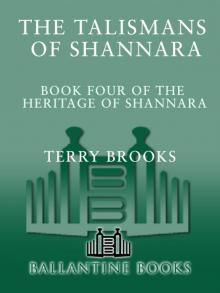 The Talismans of Shannara
The Talismans of Shannara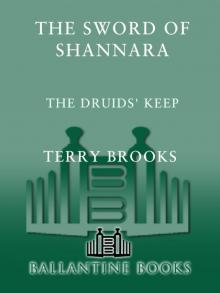 The Sword of Shannara: The Druids' Keep: The Druids' Keep
The Sword of Shannara: The Druids' Keep: The Druids' Keep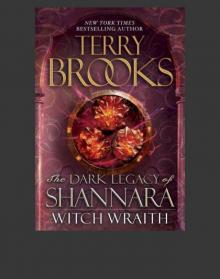 Witch Wraith
Witch Wraith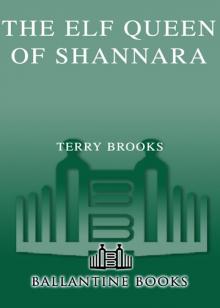 The Elf Queen of Shannara
The Elf Queen of Shannara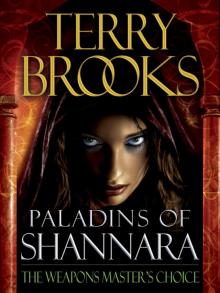 The Weapons Master's Choice
The Weapons Master's Choice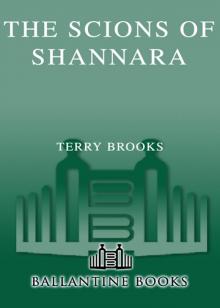 The Scions of Shannara
The Scions of Shannara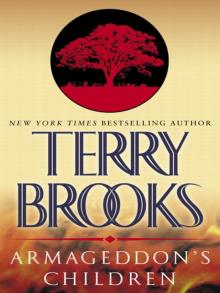 Armageddon's Children
Armageddon's Children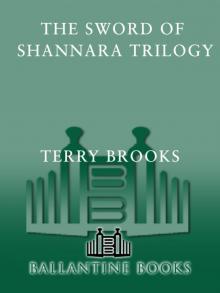 The Sword of Shannara Trilogy the Sword of Shannara Trilogy
The Sword of Shannara Trilogy the Sword of Shannara Trilogy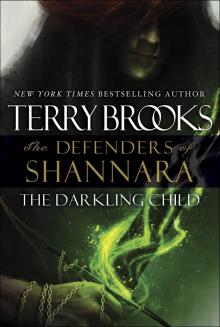 The Darkling Child
The Darkling Child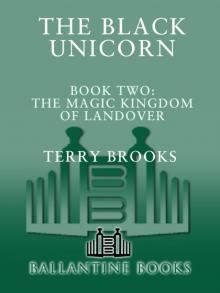 The Black Unicorn
The Black Unicorn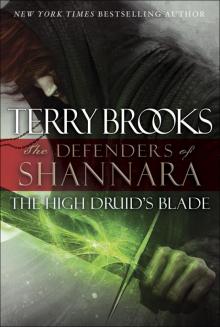 The High Druid's Blade
The High Druid's Blade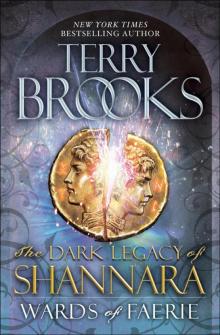 Wards of Faerie
Wards of Faerie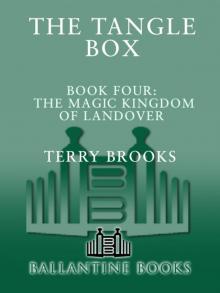 The Tangle Box
The Tangle Box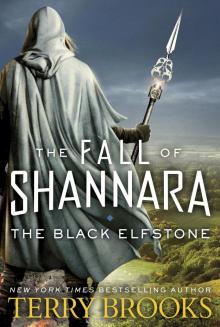 The Black Elfstone
The Black Elfstone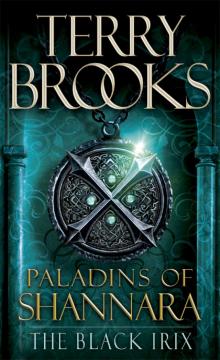 The Black Irix
The Black Irix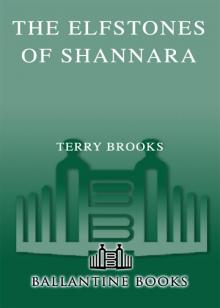 The Elfstones of Shannara
The Elfstones of Shannara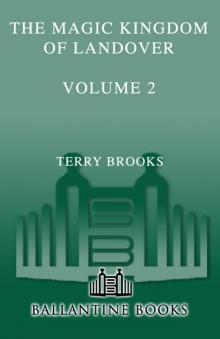 The Magic Kingdom of Landover Volume 2
The Magic Kingdom of Landover Volume 2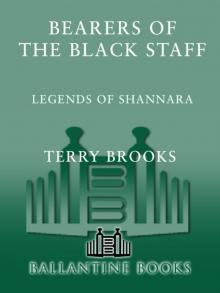 Bearers of the Black Staff
Bearers of the Black Staff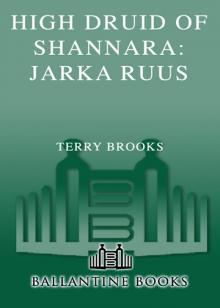 Jarka Ruus
Jarka Ruus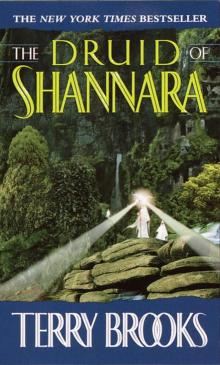 The Druid of Shannara
The Druid of Shannara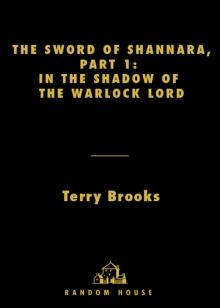 The Sword of Shannara
The Sword of Shannara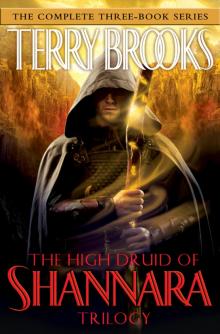 The High Druid of Shannara Trilogy
The High Druid of Shannara Trilogy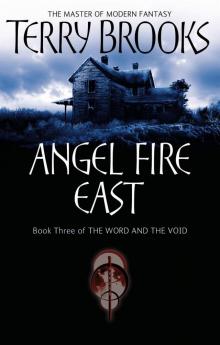 Angel Fire East
Angel Fire East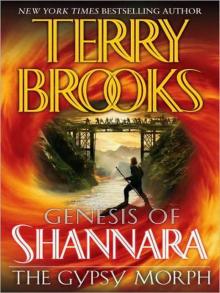 The Gypsy Morph
The Gypsy Morph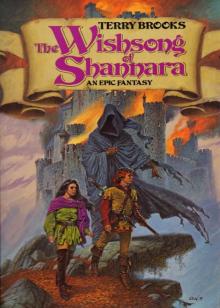 The Wishsong of Shannara
The Wishsong of Shannara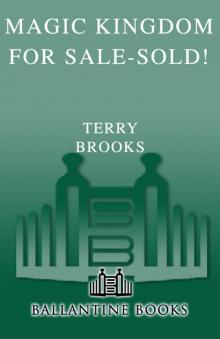 Magic Kingdom for Sale--Sold
Magic Kingdom for Sale--Sold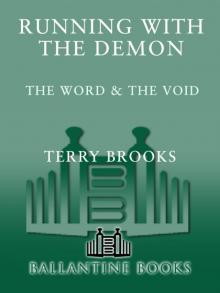 Running With the Demon
Running With the Demon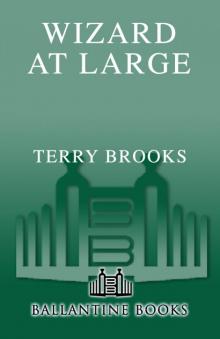 Wizard at Large
Wizard at Large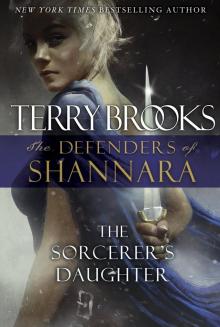 The Sorcerer's Daughter
The Sorcerer's Daughter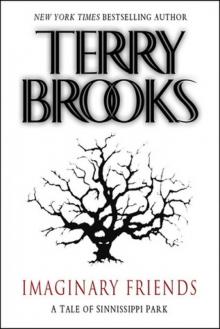 Imaginary Friends
Imaginary Friends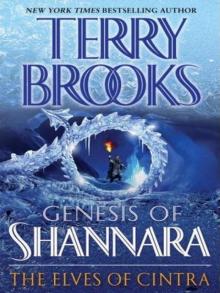 The Elves of Cintra
The Elves of Cintra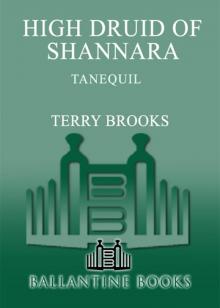 Tanequil
Tanequil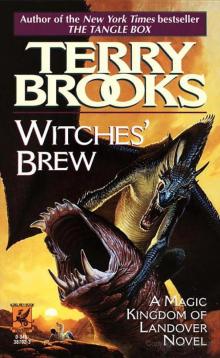 Witches' Brew
Witches' Brew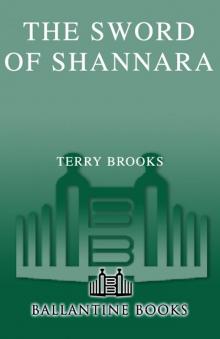 The Sword of the Shannara and the Elfstones of Shannara
The Sword of the Shannara and the Elfstones of Shannara The World of Shannara
The World of Shannara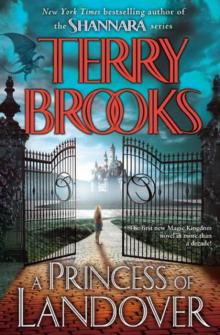 A Princess of Landover
A Princess of Landover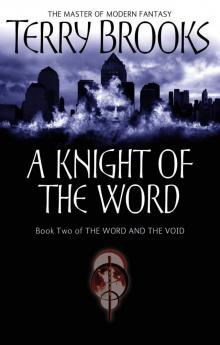 A Knight of the Word
A Knight of the Word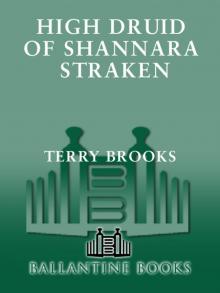 Straken
Straken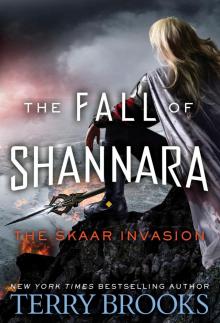 The Skaar Invasion
The Skaar Invasion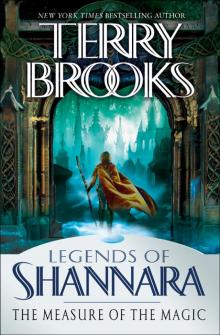 The Measure of the Magic: Legends of Shannara
The Measure of the Magic: Legends of Shannara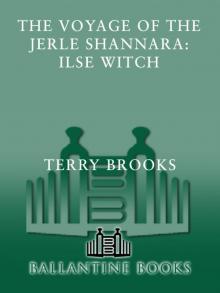 Ilse Witch
Ilse Witch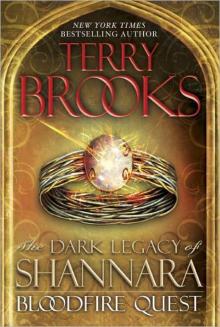 Bloodfire Quest
Bloodfire Quest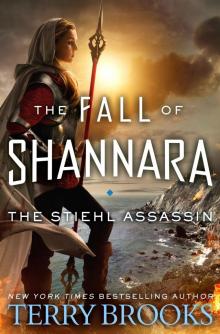 The Stiehl Assassin
The Stiehl Assassin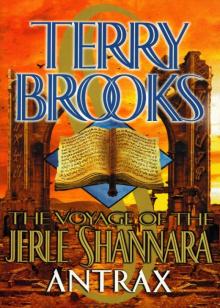 Antrax
Antrax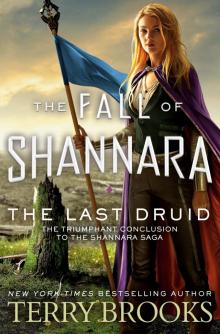 The Last Druid
The Last Druid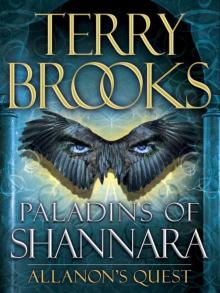 Paladins of Shannara: Allanon's Quest
Paladins of Shannara: Allanon's Quest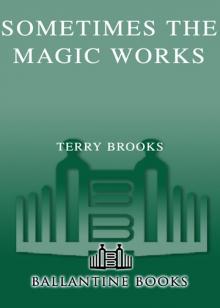 Sometimes the Magic Works: Lessons From a Writing Life
Sometimes the Magic Works: Lessons From a Writing Life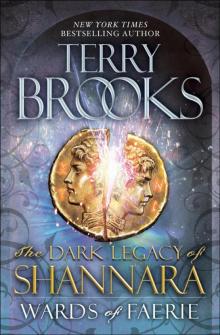 Wards of Faerie: The Dark Legacy of Shannara
Wards of Faerie: The Dark Legacy of Shannara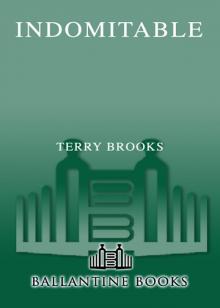 Indomitable: The Epilogue to The Wishsong of Shannara
Indomitable: The Epilogue to The Wishsong of Shannara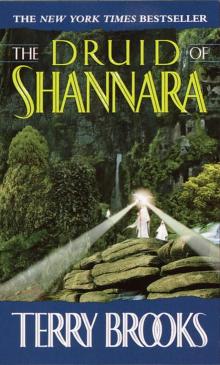 Heritage of Shannara 01 - The Druid of Shannara
Heritage of Shannara 01 - The Druid of Shannara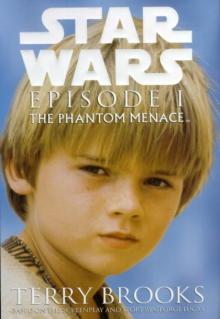 Star Wars - Phantom Menace
Star Wars - Phantom Menace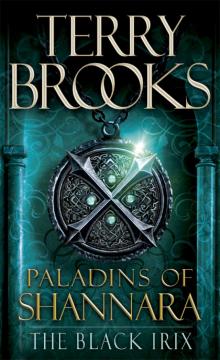 The Dark Legacy of Shannara Trilogy 3-Book Bundle
The Dark Legacy of Shannara Trilogy 3-Book Bundle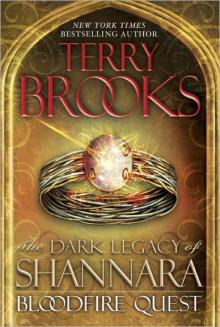 The Bloodfire Quest
The Bloodfire Quest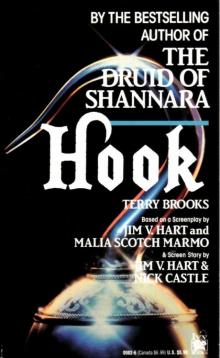 The Hook (1991)
The Hook (1991)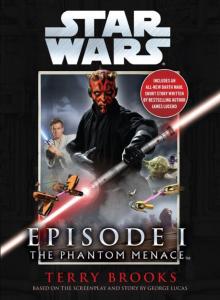 Star Wars: Episode I: The Phantom Menace
Star Wars: Episode I: The Phantom Menace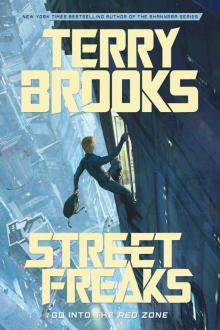 Street Freaks
Street Freaks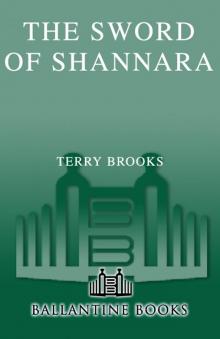 The Sword of Shannara & Elfstones of Shannara
The Sword of Shannara & Elfstones of Shannara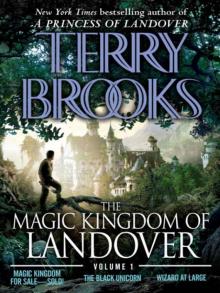 The Magic Kingdom of Landover , Volume 1
The Magic Kingdom of Landover , Volume 1 The Phantom Menace
The Phantom Menace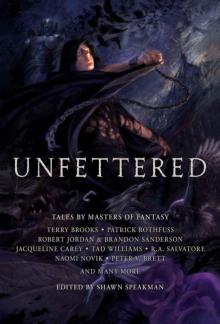 Unfettered
Unfettered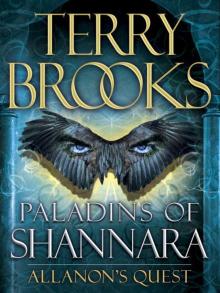 Allanon's Quest
Allanon's Quest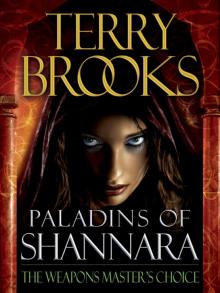 Paladins of Shannara: The Weapons Master's Choice
Paladins of Shannara: The Weapons Master's Choice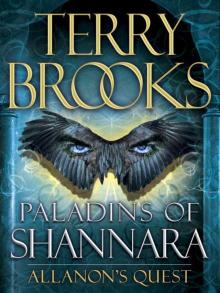 Terry Brooks - Paladins of Shannara - Allanon's Quest (Short Story)
Terry Brooks - Paladins of Shannara - Allanon's Quest (Short Story)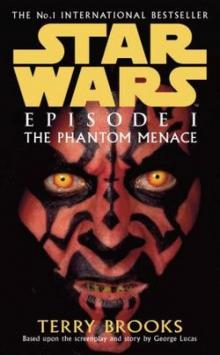 Star Wars Episode I: The Phantom Menace (star wars)
Star Wars Episode I: The Phantom Menace (star wars)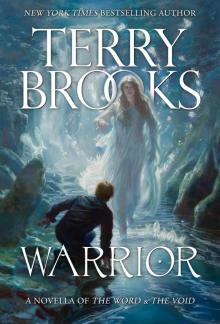 Warrior (The Word and the Void)
Warrior (The Word and the Void)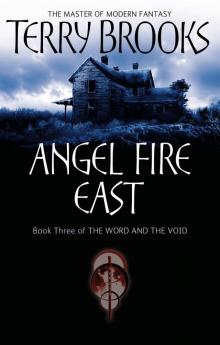 Word & Void 03 - Angel Fire East
Word & Void 03 - Angel Fire East![[Magic Kingdom of Landover 05] - Witches' Brew Read online](http://i1.bookreadfree.com/i2/04/05/magic_kingdom_of_landover_05_-_witches_brew_preview.jpg) [Magic Kingdom of Landover 05] - Witches' Brew
[Magic Kingdom of Landover 05] - Witches' Brew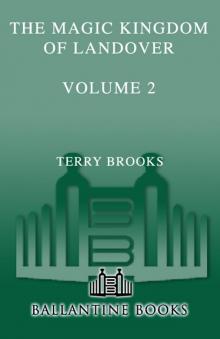 The Magic Kingdom of Landover - Volume 2
The Magic Kingdom of Landover - Volume 2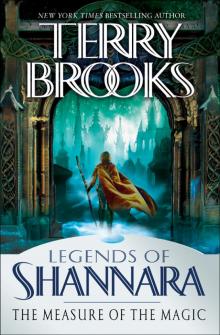 The Measure of the Magic
The Measure of the Magic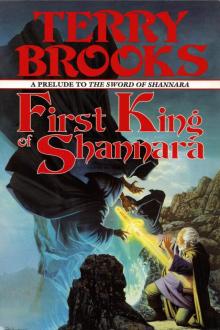 The First King of Shannara
The First King of Shannara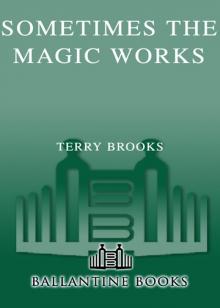 Sometimes the Magic Works
Sometimes the Magic Works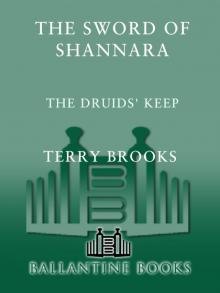 The Sword of Shannara, Part 2: The Druids' Keep
The Sword of Shannara, Part 2: The Druids' Keep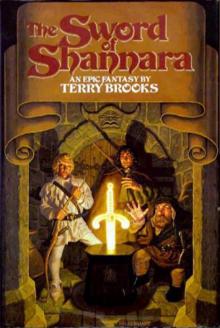 The Sword of Shannara tost-1
The Sword of Shannara tost-1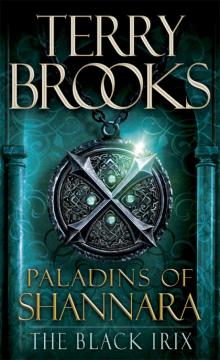 Paladins of Shannara: The Black Irix (Short Story)
Paladins of Shannara: The Black Irix (Short Story)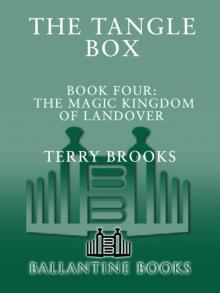 Tangle Box
Tangle Box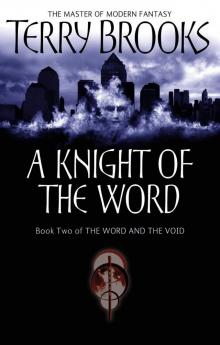 Word & Void 02 - A Knight of the Word
Word & Void 02 - A Knight of the Word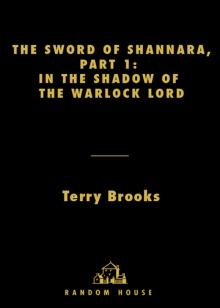 The Sword of Shannara, Part 1: In the Shadow of the Warlock Lord
The Sword of Shannara, Part 1: In the Shadow of the Warlock Lord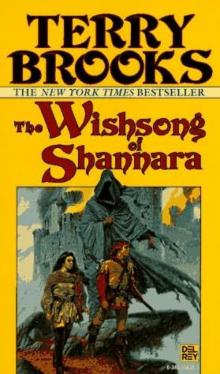 The Wishsong of Shannara tost-3
The Wishsong of Shannara tost-3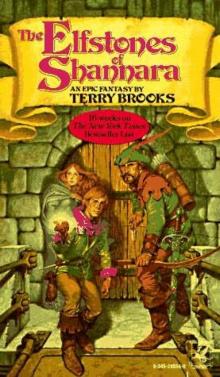 The Elfstones of Shannara tost-2
The Elfstones of Shannara tost-2